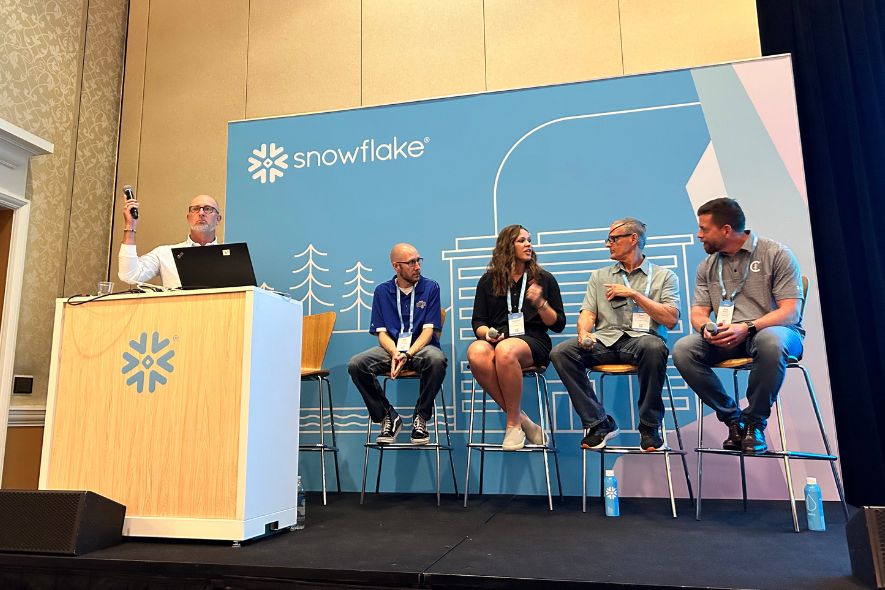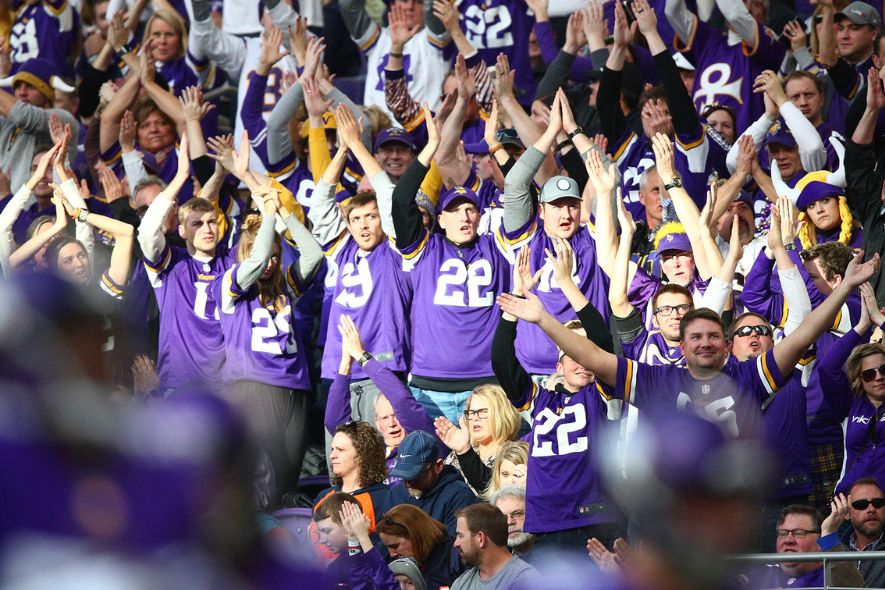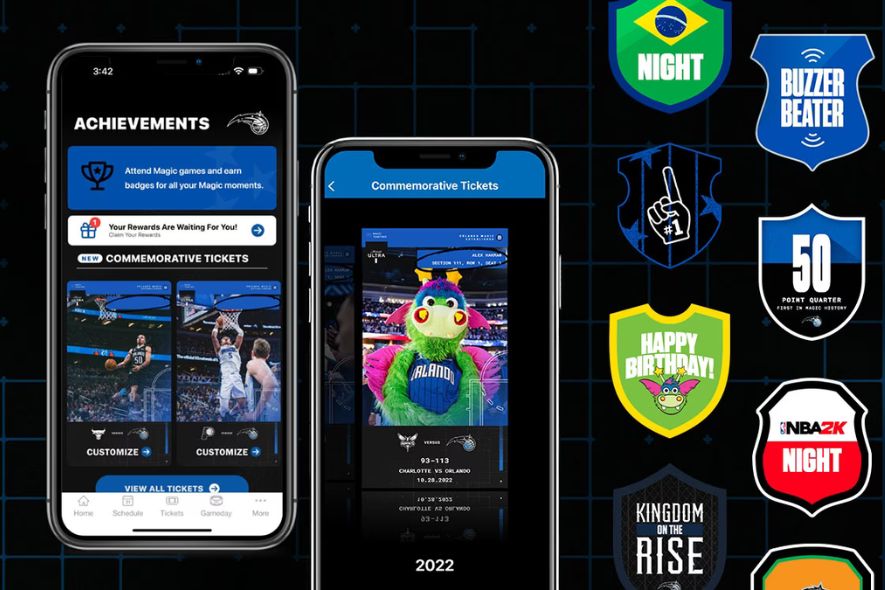Sports is a numbers game, on and off the field. Find out how major league sports teams across the NFL, NBA, and MLB are using Snowflake Data Cloud to win the hearts and wallets of their fans.
The COVID-19 pandemic hit the “pause” button on sports around the world, shutting down revenue streams as leagues canceled games and venues sat empty. But since the return to in-person events, spending has rebounded—and then some. According to a January 2023 report, the global sports market grew from $486.61 billion in 2022 to $512.14 billion in 2023. It’s projected to hit a whopping $623.63 billion by 2027.
Bill Stratton, Snowflake’s Global Industry Lead for Media, Entertainment & Advertising, remarked, “Sports franchises are not just surviving, but thriving amidst the challenges faced by other businesses.”
“Sports teams’ valuations are skyrocketing, and it’s a testament to the wealth of fan information that teams possess.” —Bill Stratton, Snowflake
Indeed, teams now have unprecedented access to vast data from diverse sources.
“What once was ‘buy a ticket, a hot dog, and a beer’ is now a connected experience,” said Ken Martin, Cisco’s Managing Director of Global Sports, Media and Entertainment, at Cisco Live 2023. “The whole experience of how the game is consumed is changing, and everything that’s plugged into the network has changed.”
Data Is Now a Key Player for Fans and Sports Teams

In-person attendees now rely on their mobile devices for tasks like ticketing, parking, concessions, and checking real-time league and player stats. Home viewers crave constant information and connection, which has driven broadcasts to incorporate dynamic player analysis, 3D graphics and heatmaps and user-generated content.
Every digital touchpoint creates another piece of data for sports teams to collect and analyze.
In the highly competitive world of major league sports, a robust data analytics program is no longer an option. In fact, it may be critical for winning fans and revenue.
The Business of Sports Analytics—On and Off the Field

Like many modern companies, the top professional sports organizations are realizing the immense value of data to their business. There are typically two sides of sports analytics: the player side and the business side.
“When you hear about data analytics in sports, most people think of the ‘sexy moneyball side’ of player analytics,” said Aron Clymer, Data Clymer CEO and founder. “On the business side of the house, you have data teams who are responsible for ticketing, sales, and fan engagement.”
“Unfortunately, most sports organizations keep those two analytics teams separate. And—as in most cases—separate does not mean equal.” —Aron Clymer, Data Clymer
While many sports franchises have doubled down on investments in player analytics, the business side is often strapped for resources. Business analytics teams are often half the size of their player analytics counterparts. The two teams typically don’t have a lot of communication or collaboration.
Adding to the challenge, managing data from an ever-increasing number of digital touchpoints is extremely complex. It requires extensive data modeling, custom integrations, and deep technical expertise that in-house business teams simply don’t have.
Modern Data Stacks Unleash New Opportunities for Sports Data Teams

Luckily, the times have changed in more ways than one. Cutting-edge data platforms like Snowflake Data Cloud are now helping some of the biggest sports leagues around the world act like the big brands people believe they are. The platform has been a game-changer for teams like the Minnesota Vikings, a long-time Data Clymer and Snowflake customer.
Madison Koch, who managed data solutions for the Minnesota Vikings for over seven years, highlighted the team’s unique journey during a sports panel discussion at the 2023 Snowflake Summit.
“We have a small team and a tight budget. Unlike other platforms we’ve used, Snowflake has given more autonomy to my team. They can actually be ‘hands-on’ in the program, which wasn’t possible before.” —Madison Koch, Minnesota Vikings
Like many sports teams, the Minnesota Vikings once relied on customer data platforms (CDPs) to simplify data collection, storage, and analysis. However, as the industry evolved rapidly, these third-party systems failed to adapt.
Let’s take a closer look at how the Vikings and other major league sports teams leverage Snowflake Data Cloud to drive fan engagement, democratize data across their organizations, and fuel revenue growth.
MLB Teams Modernize the Fan Experience with Actionable Data

Once known as America’s favorite pastime, baseball is now at an interesting crossroads. Fans no longer have the attention spans they once did, and the sport has explored rule changes to speed up games and re-engage fans. Data teams are analyzing the effects of these changes and incorporating new data sets to adapt and enhance the fan experience.
With Snowflake and master data management, MLB teams can bring together fan data from myriad data sources, de-duplicate records, and create one accurate, reliable fan record—often referred to as a Fan Golden Record.
Chris Brummett, Director of Software Development and Enterprise Data Management for the Chicago Cubs, praised Snowflake for its ability to help his team make data actionable across the organization.
“The speed at which we can share data is a significant advantage,” Brummett commented. “Previously, sharing data was challenging with our on-premise technology. The quick turnaround time with Snowflake excites non-data personnel within our organization. They now know that when they request data, they can expect it quickly. This has led to a shift in our day-to-day operations.”
NFL’s Minnesota Vikings Leverage Data to Drive Fandom 365 Days a Year

In football, the data challenges and objectives are very different. Whereas even premier MLB teams struggle to drive ticket sales for 162 games per year, the top NFL teams typically sell out single-game tickets and have a high rate of season ticket renewals. Because of this, their focus is less on ticketing and more on understanding the drivers of fandom.
“By knowing what drives fans, we can create more relevant and valuable marketing initiatives,” Koch explained. “For example, we have observed that Generation X tends to follow players, while older generations remain loyal to teams. This understanding allows us to target fans more effectively, delivering personalized experiences.”
Koch explained how the team also adapts merchandise strategies to align with generational preferences, such as offering throwback jerseys to college buyers.
The Vikings see Snowflake clean rooms as an exciting opportunity to advance in their goal of becoming a 365 brand. Collaborating securely with sponsors on Snowflake provides a streamlined way to get valuable rewards into the hands of fans. Koch envisions being able to send free beverages to stadium fans on game day or airline miles when fans attend an away game.
“We’re asking: How can we make fandom about much more than our home games and make fans feel valued for it?” —Madison Koch, Minnesota Vikings
Not only do these types of sponsorship programs benefit fans, but they also improve conversion rates for sponsors. This, in turn, helps drive sponsorship advertising—a major revenue stream for sports teams.
NBA’s Orlando Magic Scores a Slam Dunk by Prioritizing Data Innovation

Data analytics and business intelligence have been long-time priorities at the Orlando Magic, where innovation is a core value. In fact, the Magic is one of the few teams where player analytics and business analytics do not operate separately. Whether it’s the collaboration that leads to innovation or vice versa is hard to say, but one thing is certain: the team is using data to make magic with fans.
In February 2023, the Magic introduced the Fan Achievement and Rewards program, a custom-built loyalty initiative within their app. This personalized, data-driven experience recognizes and rewards fan affinity while fostering deeper engagement.
Josh Auter, Sr. Data Engineer at the Orlando Magic, elaborated on their approach to fan engagement and sponsor collaboration. It’s not about offering random items like bobbleheads, but instead creating personalized, multi-touch experiences.
“You have to know how to pair items properly.…If it’s not relevant to that particular opportunity, it almost detaches the fan in a way. It shows your lack of understanding for what they’re hoping to engage with you on.” —Josh Auter, Orlando Magic
Many of the Magic’s data strategies revolve around gaining a comprehensive, holistic view of their fans. Snowflake’s agility and speed have proven invaluable in this effort.
Auter further highlighted the significance of transitioning to a platform that enables exploration of large data spectrums. The ability to decouple storage from compute and make real-time adjustments has been transformative. He stated, “Being able to immediately adjust and democratize that control has been huge. It allows a small company that the world sees as a large global brand to actually act as a large global brand.”
The Future of Data Analytics in Sports

While sports teams have made significant progress in improving their data analytics and business strategies, the journey is far from over. The coming years offer ample opportunities based on rapid technological advances and rising awareness of the ROI of data.
Koch said, “The beauty is, we get to see what worked and what didn’t. Then we can strategize about how to move forward. We see all these wonderful things like AI and ChatGPT. How can we utilize them and are we set up to do that? Are we able to stay informed with new technology and utilize it to the benefit of our fans and our companies?”
Elevating the Fan Experience
Certainly, sports teams and their sponsors stand to benefit from this evolution. But the teams unanimously agreed: the real winner is the fan.
“Sports are like a part of you. It’s not all about money. It’s about driving brand loyalty and making sure fans get what they deserve from the engagement.” —Josh Auter, Orlando Magic
For sports enthusiasts worldwide, the COVID-19 pandemic served as a poignant reminder of the profound significance of these events. Sports cultivate a remarkably distinctive human experience. They facilitate connections with others and serve as a testament to the worth of teamwork and resilience. It transcends mere support for one’s team; it’s about being part of a greater whole.
Data possesses the capability to enhance the sports experience, rendering it more profound for fans. It has the potential to transform us from passive spectators into active participants and team members.
And that’s something we can all rally behind.
Ready to Level Up Your Data Analytics Game?
Data Clymer offers a collection of helpful resources on data analytics in sports, as well as a range of data consulting services and modern sports analytics solutions. Our team of data experts has helped major league sports teams like the Minnesota Vikings and Las Vegas Raiders achieve their data goals.
For more insights on data analytics in sports, attend our upcoming sports panel discussion at dbt Coalesce. Aron Clymer, founder and CEO of Data Clymer, will discuss the modern data stack’s benefits with top professional sports data leaders.
Schedule a meeting with Aron to discuss his strategic recommendations for your organization.

